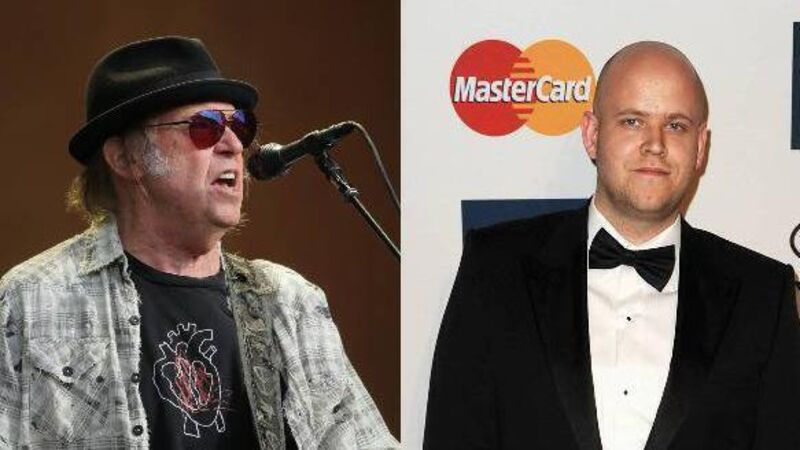Tom Dunne: Neil Young proves he can still stick it to the Man

Neil Young and Spotify co-founder Daniel Ek.
Neil Young telling workers at Spotify to quit their jobs this week was the most hippy-ish thing I’ve heard since Dublin's Dandelion market closed. It was naïve, silly, impractical, old school and daft. It was also 100% on the money, money being the one thing Spotify understands.
“Daniel Ek is your big problem - not Joe Rogan,” said Mr Young. “Ek pulls the strings. Get out of that place before it eats up your soul.”




